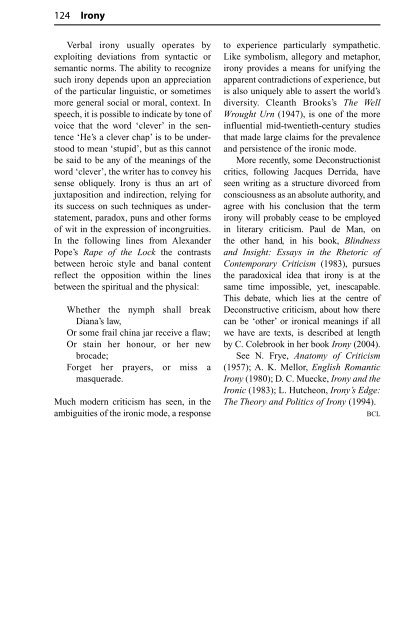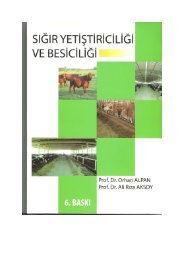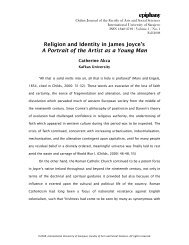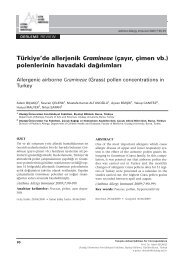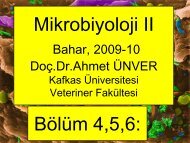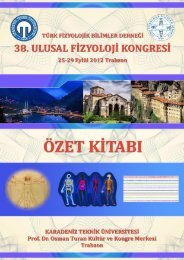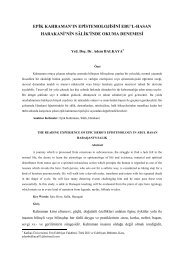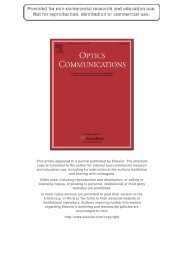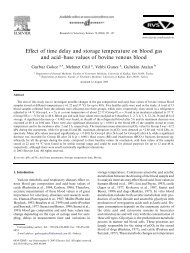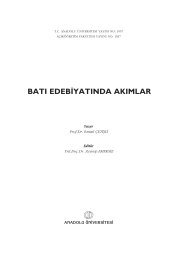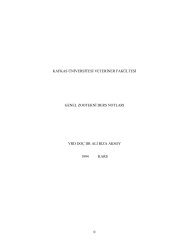The Routledge Dictionary of Literary Terms
The Routledge Dictionary of Literary Terms
The Routledge Dictionary of Literary Terms
Create successful ePaper yourself
Turn your PDF publications into a flip-book with our unique Google optimized e-Paper software.
124 Irony<br />
Verbal irony usually operates by<br />
exploiting deviations from syntactic or<br />
semantic norms. <strong>The</strong> ability to recognize<br />
such irony depends upon an appreciation<br />
<strong>of</strong> the particular linguistic, or sometimes<br />
more general social or moral, context. In<br />
speech, it is possible to indicate by tone <strong>of</strong><br />
voice that the word ‘clever’ in the sentence<br />
‘He’s a clever chap’ is to be understood<br />
to mean ‘stupid’, but as this cannot<br />
be said to be any <strong>of</strong> the meanings <strong>of</strong> the<br />
word ‘clever’, the writer has to convey his<br />
sense obliquely. Irony is thus an art <strong>of</strong><br />
juxtaposition and indirection, relying for<br />
its success on such techniques as understatement,<br />
paradox, puns and other forms<br />
<strong>of</strong> wit in the expression <strong>of</strong> incongruities.<br />
In the following lines from Alexander<br />
Pope’s Rape <strong>of</strong> the Lock the contrasts<br />
between heroic style and banal content<br />
reflect the opposition within the lines<br />
between the spiritual and the physical:<br />
Whether the nymph shall break<br />
Diana’s law,<br />
Or some frail china jar receive a flaw;<br />
Or stain her honour, or her new<br />
brocade;<br />
Forget her prayers, or miss a<br />
masquerade.<br />
Much modern criticism has seen, in the<br />
ambiguities <strong>of</strong> the ironic mode, a response<br />
to experience particularly sympathetic.<br />
Like symbolism, allegory and metaphor,<br />
irony provides a means for unifying the<br />
apparent contradictions <strong>of</strong> experience, but<br />
is also uniquely able to assert the world’s<br />
diversity. Cleanth Brooks’s <strong>The</strong> Well<br />
Wrought Urn (1947), is one <strong>of</strong> the more<br />
influential mid-twentieth-century studies<br />
that made large claims for the prevalence<br />
and persistence <strong>of</strong> the ironic mode.<br />
More recently, some Deconstructionist<br />
critics, following Jacques Derrida, have<br />
seen writing as a structure divorced from<br />
consciousness as an absolute authority, and<br />
agree with his conclusion that the term<br />
irony will probably cease to be employed<br />
in literary criticism. Paul de Man, on<br />
the other hand, in his book, Blindness<br />
and Insight: Essays in the Rhetoric <strong>of</strong><br />
Contemporary Criticism (1983), pursues<br />
the paradoxical idea that irony is at the<br />
same time impossible, yet, inescapable.<br />
This debate, which lies at the centre <strong>of</strong><br />
Deconstructive criticism, about how there<br />
can be ‘other’ or ironical meanings if all<br />
we have are texts, is described at length<br />
by C. Colebrook in her book Irony (2004).<br />
See N. Frye, Anatomy <strong>of</strong> Criticism<br />
(1957); A. K. Mellor, English Romantic<br />
Irony (1980); D. C. Muecke, Irony and the<br />
Ironic (1983); L. Hutcheon, Irony’s Edge:<br />
<strong>The</strong> <strong>The</strong>ory and Politics <strong>of</strong> Irony (1994).<br />
BCL


